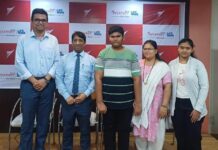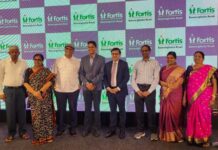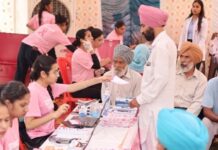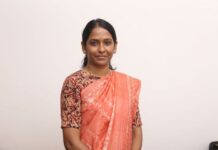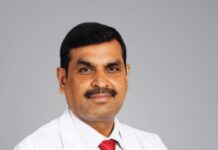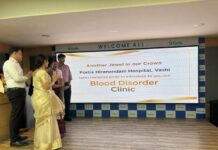Mumbai, February 03, 2025: On the eve of World Cancer Day, leading oncologist Dr. Anil D’Cruz issued a stark warning about the growing incidence of cancer in India, stressing that prevention and early detection remain the most powerful weapons against this deadly disease. Speaking at a high-profile seminar, Dr. D’Cruz highlighted that one in five men and one in eight women in India are at risk of developing cancer, attributing this alarming rise to changing lifestyles, environmental degradation, and lack of awareness. While cancer continues to claim millions of lives, he emphasized that it is largely preventable if individuals adopt healthier lifestyles, avoid tobacco and alcohol, maintain a balanced diet, and undergo regular health check-ups.
The seminar, organized as part of the ‘Jagega Bharat Toh Bachega Bharat’ campaign by the Ambagopal Foundation, witnessed the participation of eminent medical professionals, environmentalists, policymakers, and over 2,000 students. The campaign was launched under the leadership of philanthropist Dr. Harish Shetty and was inaugurated by Union Minister of State for Social Justice, Ramdas Athawale. Addressing the gathering, Minister Athawale stressed the importance of preventive healthcare and pledged government support for large-scale awareness programs, delivering his message in his signature poetic style that resonated with the audience.
Dr. D’Cruz emphasized that tobacco consumption remains the single largest preventable cause of cancer in India, responsible for nearly 40% of cases. He urged immediate policy action to curb tobacco usage and called on individuals to quit smoking and chewing tobacco. Alcohol, he warned, is another major carcinogen, dispelling myths that moderate consumption is safe. Additionally, he highlighted infection-related cancers such as cervical cancer caused by the Human Papillomavirus (HPV), stressing the need for vaccinations and regular screenings. The importance of maintaining a healthy weight was another crucial factor, as obesity significantly increases cancer risk. A diet rich in vitamins A, C, and E, along with fiber from fruits and vegetables, can reduce susceptibility to the disease.
Dr. Subhash Palekar, an advocate of zero-budget natural farming and a Padma Shri awardee, took the discussion further by linking cancer to dietary habits. He criticized the growing dependence on processed and chemically treated foods, arguing that Western dietary influences have led to an increase in acidic food consumption, which in turn fuels cancer and other chronic illnesses. He advocated for a return to traditional Indian diets rich in millets, pulses, and fresh vegetables. He also raised concerns about the impact of fertilizers and pesticides in agriculture, emphasizing the urgent need for cleaner, toxin-free food.
Adding a real-world perspective to the discussion, Peter Singh and Nino Kaur, an elderly couple from Delhi, shared their extraordinary journey of overcoming leukemia through a nature-centric lifestyle. After Nino was diagnosed with leukemia, the couple transformed their home into a self-sustaining mini-forest with over 12,000 plants, purifying their surroundings and embracing organic living. Through their innovative ‘Aquatonics’ technique, they now grow vegetables without soil, using fish compost as a natural fertilizer. Their success in reversing illness through clean living has inspired thousands, proving that nature holds the key to healing.
Water conservationist and Ramon Magsaysay Award winner Dr. Rajendra Singh shifted the focus to India’s deteriorating environmental conditions, drawing a direct link between pollution and rising cancer cases. He lamented the fact that India’s rivers, once pure and life-sustaining, have now turned into drains. Pointing to Mumbai as a prime example, he stated that urbanization and industrial waste have rendered natural water sources undrinkable, leading to a surge in diseases, including cancer. He underscored the need to respect and restore the Panchamahabhutas—the five elements of nature—to reclaim public health.
Dr. Harish Shetty, spearheading the ‘Jagega Bharat Toh Bachega Bharat’ campaign, passionately called for a mass movement towards cancer prevention. He proposed renaming February 4 as ‘World Cancer-Free Day’ to shift the narrative from treatment to proactive prevention. He stressed that clean air, clean water, and clean soil are not privileges but fundamental rights and advocated for a national transition towards fertilizer-free agriculture. The campaign urges every Indian to take personal responsibility for their health and the well-being of future generations by making informed choices about their lifestyle, diet, and environment.
As the event concluded, the overarching message was clear—cancer is not an inevitable fate. With conscious efforts in prevention, early detection, and environmental conservation, India can significantly reduce its cancer burden. The time to act is now, and every individual has a role to play in creating a healthier, cancer-free nation.
Corporate Comm India (CCI Newswire)

